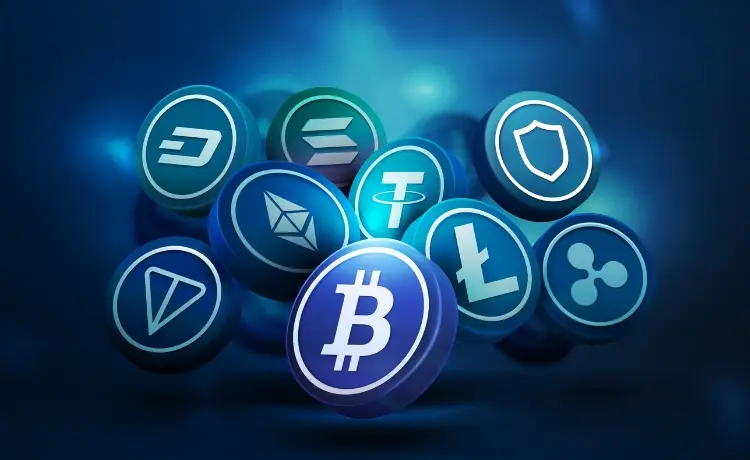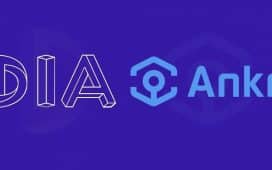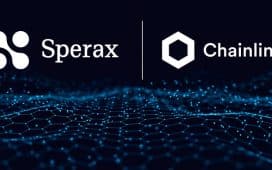Blockchain enhances crypto protection with unique traits. Its decentralized framework and unchangeable public records reduce malware risks and hacking attacks. Cryptography, hashes, and keys protect user data privacy, making blockchain robust for securing crypto deals. Every blockchain transaction gets securely recorded, stored in blocks, and encoded chronologically, fostering trust in data sharing. This innovative tech verifies deal integrity without intermediaries like banks, enhancing crypto security measures.
Top Key Features of Blockchain
Blockchain is distinguished by several unique characteristics that establish it as a groundbreaking and highly desirable platform. Here are the top key features of Blockchain:
- Immutability: Once a transaction is recorded on the blockchain, it cannot be altered or deleted. This permanency ensures that the ledger is tamper-proof and provides high security and trust.
- Decentralization: Blockchain operates without a central authority. Each node in the network maintains an identical copy of the ledger, eliminating middlemen and enhancing security and trust in transactions.
- Consensus Algorithms: Blockchain uses consensus algorithms to achieve agreement among nodes on the validity of transactions. This ensures fast and unbiased decision-making, enabling efficient operations.
- Fast Transactions: Blockchain allows for faster settlements compared to traditional banking systems, thanks to its decentralized and efficient transaction processing capabilities.
- Smart Contracts: Blockchain supports smart contracts, which are self-executing agreements with predefined rules. These contracts automate processes and enhance efficiency across various industries such as banking, healthcare, real estate, and logistics.
Improvise Crypto Protection with Blockchain
Blockchain brings unique advantages for data security. It helps combat tampering and boosts system resilience against cyber threats. Blockchain plays a key role in securing cryptocurrencies due to its unique features.
Immutable Ledger
A key way blockchain enhances crypto security is its unchangeable ledger. Data recorded on a blockchain cannot be altered, ensuring transaction and balance integrity. This prevents fraud and unauthorized changes, making cryptocurrencies more secure.
Decentralized Consensus
Blockchain networks use decentralized consensus, where many participants verify and add transactions. Decentralization eliminates single points of failure. It makes tampering extremely difficult. As a result, cryptocurrencies are better protected from hacking.
Smart Contracts for Automated Security in Crypto Networks
Cryptocurrencies like Ethereum (ETH), Bitcoin (BTC), Tether (USDT), and Tron (TRX) are fundamental in facilitating smart contract applications within blockchain networks. Tron, in particular, stands out for its emphasis on decentralized applications (dApps) and high transaction throughput. Tron’s blockchain supports smart contracts that autonomously execute transactions and enforce rules, thereby enhancing operational efficiency and security. This capability is especially relevant in sectors such as online gaming and entertainment, where Tron’s network enables seamless and transparent operations. Utilizing Tron’s infrastructure, dApps such as Tron casinos automate payouts, enforce game rules impartially, and ensure fair gaming outcomes, thereby bolstering trust and establishing new benchmarks in the gaming industry.
How to Address Challenges and Explore Future Directions
Blockchain improves transparency and security, streamlines processes, and enables innovation across sectors. However, it faces unique challenges and considerations. This explores these hurdles and future advancements in blockchain technology.
Challenges in Blockchain Implementation
Scalability and Performance
Blockchain must balance scalability and decentralization to handle high transaction volumes efficiently. Solutions like layer 2 protocols, sidechains, and state channels are being developed to enhance performance.
Interoperability and Standards
Blockchain works smoothly when different networks connect. But adoption grows slowly because solutions do not link well. Standards help networks share data easily. The industry keeps working to create standards that boost secure connections between blockchains.
Security and Privacy
Improving security, protecting privacy, and mitigating risks are crucial for blockchain technology. These networks face security threats, so robust measures are vital. Advancements in encryption and consensus rules enhance security and privacy standards.
Regulatory and Compliance
Navigating regulations and compliance challenges blockchain adoption. The evolving landscape creates uncertainty, making engagement with regulators essential. Collaboration fosters innovation and ensures legal compliance across jurisdictions.
Future Directions and Opportunities
Scalability Solutions
Research focuses on layer 2 solutions like side chains and state channels to enhance scalability. These aim to process transactions off-chain, increasing capacity while maintaining performance.
Interoperability Initiatives
Many groups work to establish standards for blockchains. They create rules for networks to communicate and interact. This facilitates interoperability between different blockchains. With common protocols for data sharing, blockchains can work more seamlessly together.
Security Innovations
Advances in cryptography bolster blockchain security and privacy, fortifying infrastructure and safeguarding data. New consensus mechanisms enhance network resilience, ensuring data integrity and confidentiality against threats.
Regulatory Frameworks
Collaborating with regulators establishes guidelines for blockchain adoption. Fostering dialogue helps develop supportive regulatory frameworks for responsible implementation.
Conclusion
Blockchain’s decentralized public ledger enhances crypto protection with immutability and transparency. Key features like immutability, decentralization, security, consensus algorithms, and smart contracts revolutionize finance, healthcare, and supply chains. They improve crypto security, prevent tampering, and automate measures. In online casinos, blockchain enhances processes, security, and fair gaming. Challenges include scalability, interoperability, security, and regulation. Future efforts aim at scalability solutions, interoperability initiatives, security innovations, and regulatory frameworks to address these issues and unlock innovation.






